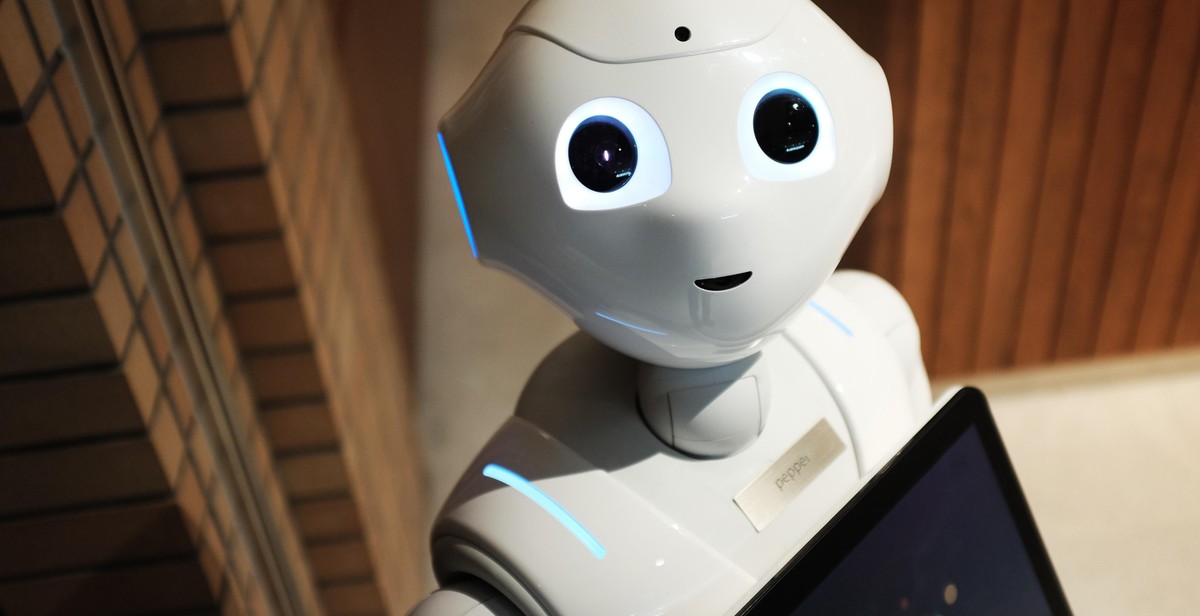Introduction
Advancements in technology have transformed various industries, and the field of genetics is no exception. With the emergence of Artificial Intelligence (AI) and gene editing techniques, scientists and researchers are exploring new possibilities in genetic modification. This article delves into the role of technology in genetic modification, focusing on the intersection of AI and gene editing.
Gene editing, particularly with the development of CRISPR-Cas9, has revolutionized the way scientists can modify genes. This powerful tool allows for precise modifications to DNA, offering potential solutions to genetic disorders and diseases. However, the integration of AI in gene editing processes has further enhanced the efficiency and accuracy of genetic modifications.
AI algorithms and machine learning techniques assist scientists in analyzing vast amounts of genetic data, identifying patterns, and predicting outcomes. By combining AI with gene editing, researchers can expedite the discovery of gene functions, understand the complexities of genetic diseases, and develop more targeted treatments.
This article explores the ethical implications and societal impact of AI and gene editing. While these technologies hold immense potential for improving human health and well-being, they also raise concerns about genetic manipulation, designer babies, and unequal access to genetic enhancements. Understanding the capabilities and limitations of AI and gene editing will enable us to navigate the complex landscape of genetic modification responsibly.
Understanding Genetic Modification
Genetic modification, also known as genetic engineering or gene editing, is a technology that involves altering the genetic makeup of an organism. It allows scientists to manipulate an organism’s DNA, the building blocks of life, by introducing specific changes or traits into its genetic material.
Types of Genetic Modification
There are several types of genetic modification techniques used in the field:
- Gene Insertion: This method involves inserting a desired gene into the DNA of an organism to introduce a new trait or enhance an existing one.
- Gene Deletion: It involves removing specific genes from an organism’s DNA to eliminate unwanted traits or characteristics.
- Gene Editing: This technique allows scientists to precisely edit or modify existing genes within an organism’s DNA, enabling them to correct genetic defects or introduce beneficial traits.
Benefits and Controversies of Genetic Modification
Genetic modification offers various potential benefits in different fields:
- Agriculture: Genetically modified crops can be engineered to resist pests, diseases, and harsh weather conditions, leading to increased crop yields and reduced reliance on pesticides.
- Medicine: Genetic modification has the potential to revolutionize medicine by allowing the production of therapeutic proteins, improving disease diagnostics, and developing more effective treatments for genetic disorders.
- Environmental Conservation: Genetic modification can help in conserving endangered species, restoring ecosystems, and mitigating the impacts of climate change by creating organisms with enhanced adaptability.
However, genetic modification also raises ethical, environmental, and safety concerns:
- Controversies: Critics argue that genetic modification may have unintended consequences, such as the creation of genetically modified organisms (GMOs) that could harm biodiversity or pose health risks to humans.
- Ethical Considerations: The manipulation of genes raises ethical questions regarding the boundaries of human intervention in nature and the potential for misuse or unethical practices.
- Safety: The long-term effects of genetic modification on human health and the environment are still under scrutiny, and comprehensive risk assessments are necessary before widespread adoption.
Despite the controversies and concerns, genetic modification continues to be an area of active research and holds significant potential for advancements in various fields.

Artificial Intelligence in Genetic Modification
Artificial Intelligence (AI) has revolutionized various industries, and the field of genetic modification is no exception. With its ability to analyze vast amounts of data and identify patterns, AI has opened up new possibilities for advancements in gene sequencing, CRISPR-Cas9 technology, and gene therapy.
AI and Gene Sequencing
Gene sequencing is a fundamental process in genetic modification, and AI has greatly enhanced its efficiency and accuracy. AI algorithms can analyze DNA sequences at an unprecedented speed, enabling researchers to identify genetic variations and potential disease-causing mutations more effectively. This capability has paved the way for personalized medicine and targeted gene therapies.
AI and CRISPR-Cas9
CRISPR-Cas9 is a revolutionary gene-editing tool that allows scientists to modify DNA sequences with precision. AI plays a crucial role in optimizing CRISPR-Cas9 experiments by predicting the potential off-target effects and suggesting improvements to increase its specificity. By harnessing AI’s computational power, researchers can streamline the gene-editing process and minimize the risk of unintended genetic modifications.
AI and Gene Therapy
Gene therapy holds immense promise for treating genetic disorders and other diseases. AI algorithms can analyze large datasets of patient information to identify suitable candidates for gene therapy, predict treatment outcomes, and optimize dosage and delivery methods. This integration of AI in gene therapy research accelerates the development of effective treatments and improves patient outcomes.
Furthermore, AI-powered algorithms can assist in the design of viral vectors used in gene therapy, enhancing their efficiency and reducing potential side effects. By simulating the interactions between viral vectors and target cells, AI can optimize the delivery of therapeutic genes, increasing the success rate of gene therapy treatments.
In conclusion, the integration of AI in genetic modification has revolutionized the field by enhancing gene sequencing, optimizing CRISPR-Cas9 technology, and improving gene therapy outcomes. As AI continues to evolve and improve, its applications in genetic modification are expected to expand further, leading to groundbreaking advancements in personalized medicine and the treatment of genetic disorders.

Challenges and Ethical Concerns
Unintended Consequences
The emergence of artificial intelligence (AI) and gene editing technologies has brought about numerous possibilities in the field of genetic modification. However, with these advancements, there are significant challenges and ethical concerns that need to be addressed. One of the primary concerns is the potential for unintended consequences.
When manipulating genes using AI and gene editing, there is a risk of introducing unintended changes to an organism’s genetic makeup. These unintended consequences could lead to unforeseen health issues or environmental disruptions. For example, modifying a gene to enhance a particular trait in a crop could inadvertently affect its nutritional value or make it more susceptible to diseases.
Furthermore, the complex nature of genetic interactions makes it difficult to predict the long-term effects of genetic modifications. Once released into the environment, altered organisms could interact with other species, potentially causing ecological imbalances or even extinction of certain species. These unintended consequences highlight the need for thorough testing and regulation to minimize risks and ensure responsible use of AI and gene editing technologies.
Ethical Considerations
Alongside the challenges posed by unintended consequences, ethical considerations surrounding AI and gene editing cannot be overlooked. The ability to modify genes raises questions about the boundaries of human intervention in nature and the potential manipulation of life itself.
One ethical concern is the potential for genetic discrimination. If gene editing becomes widely accessible, there is a risk of creating a genetic divide in society, where individuals with access to genetic enhancements are favored or discriminated against based on their genetic makeup. This raises questions about fairness, equality, and the potential for exacerbating existing social inequalities.
Another ethical consideration is the concept of “playing God.” The power to alter genes and create new life forms raises philosophical and religious debates about the limits of human knowledge and control over nature. The potential for unintended consequences and unforeseen effects of genetic modifications further complicate these ethical dilemmas.
In conclusion, the advancements in AI and gene editing technologies offer immense potential for genetic modification. However, the challenges of unintended consequences and ethical concerns must be carefully addressed to ensure responsible and ethical use of these technologies.

Future Implications and Applications
As the fields of artificial intelligence (AI) and gene editing continue to advance, the potential future implications and applications of these technologies in various sectors are becoming increasingly evident.
Precision Medicine
AI and gene editing have the potential to revolutionize the field of precision medicine. By analyzing large datasets and identifying patterns, AI algorithms can assist in the development of personalized treatment plans for individuals based on their genetic makeup. This could lead to more accurate diagnoses, targeted therapies, and improved patient outcomes. Gene editing technologies, such as CRISPR, can also be utilized to directly modify genes associated with specific diseases, potentially offering a cure or long-term treatment options.
Agriculture and Food Production
The combination of AI and gene editing holds great promise for the agricultural industry. AI can be employed to analyze vast amounts of agricultural data, including weather patterns, soil conditions, and crop genetics, to optimize farming practices and increase yields. Gene editing techniques can be used to develop crops that are more resistant to pests, diseases, and adverse environmental conditions, leading to improved crop productivity and sustainability. Additionally, AI-powered systems can aid in the monitoring and management of livestock health, ensuring better animal welfare and food safety.
Conservation and Environmental Impact
AI and gene editing technologies can play a significant role in conservation efforts and mitigating environmental impact. AI algorithms can analyze large datasets on biodiversity and ecological systems to identify patterns and develop predictive models for species conservation. Gene editing techniques can be utilized to potentially revive endangered species or enhance the resilience of ecosystems in the face of climate change. Furthermore, AI-powered monitoring systems can aid in the detection and prevention of illegal wildlife trade and poaching, contributing to the preservation of biodiversity.
In conclusion, the future implications and applications of AI and gene editing are vast and diverse. From precision medicine to agriculture and conservation, these technologies have the potential to revolutionize various sectors, leading to improved human health, sustainable food production, and enhanced environmental conservation.
Conclusion
In conclusion, the advancements in artificial intelligence (AI) and gene editing technologies have revolutionized the field of genetic modification. These technologies offer promising opportunities for improving human health, enhancing agricultural practices, and addressing environmental challenges.
AI has greatly accelerated the analysis of vast amounts of genetic data, enabling scientists to identify and understand disease-causing genes more efficiently. This has paved the way for the development of targeted gene therapies and personalized medicine, offering hope for patients with previously untreatable conditions.
Gene editing techniques, such as CRISPR-Cas9, have made it possible to precisely modify the DNA of organisms, including humans, plants, and animals. This has immense potential for increasing crop yields, developing disease-resistant livestock, and even eradicating genetic disorders.
However, the ethical implications of AI and gene editing cannot be overlooked. The ability to manipulate the very building blocks of life raises concerns about unintended consequences, unequal access to these technologies, and the potential for misuse. It is imperative for scientists, policymakers, and society as a whole to engage in thoughtful discussions and establish robust regulations to ensure responsible and ethical use of these powerful tools.
As AI and gene editing technologies continue to advance, it is crucial to strike a balance between innovation and ethical considerations. By harnessing the potential of these technologies while upholding ethical standards, we can unlock new possibilities in healthcare, agriculture, and environmental conservation, leading to a better and more sustainable future for all.
